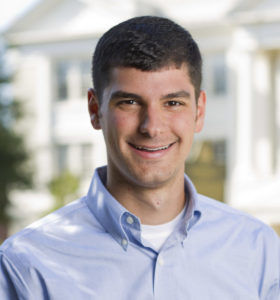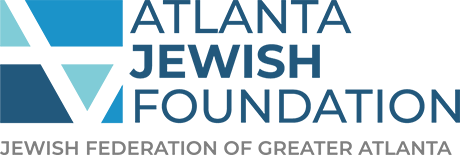
Jonathan Arogeti always heard his parents and grandparents say that giving back to the community was a central family value. “They told us, you have three options with money — spend it, save it, or give it away. And they believed by far that giving it away, if you are able, was the very highest value. During this time in my life, I’m doing all I can to encourage my peers to get involved in philanthropic giving. It’s our generation’s time to build on and sustain this incredible Atlanta community.”
Arogeti vividly remembers how his family’s support for Hillels of Georgia brought the commitment home. “We all attended the dedication ceremony of the new Hillel building at Emory,” Jonathan says. “It was just a few years after my grandfather’s death, and there was so much meaning to see my grandmother’s pleasure at the depth and impact of this gift. I was in college, and it felt so relevant to my stage of life.”
Now, when he can direct his philanthropic giving, Jonathan works closely with Staci Eichelbaum, Atlanta Jewish Foundation’s Director of Philanthropic Advising. He serves as a mentor to Atlanta young adults who have grown up blessed with family resources. With Eichelbaum, Arogeti has led two cohorts of a four-month NextGen Legacy group that helps NextGen donors clarify their own philanthropic interests — and equally important, teaches them to initiate discussions about where they would like to see family resources allocated and how they can participate.
Arogeti explains, “When you are coming of age in a family with the capacity to be generous, we want you to think about what your philanthropic interests look like from a structural and decision-making standpoint. In the group, we ask, ‘Does your family let you speak up and participate in philanthropic decisions? If not, how can you get more involved?’ “
He adds, “When the COVID-19 Emergency Response Fund was gearing up last year, we encouraged our Legacy participants to ask their parents if they were participating. Some had never asked about these decisions before.”
Arogeti also empowers the NextGen Legacy groups to be very specific about their personal priorities. “For example, tell your family, ‘I’m interested in environmental projects that lower carbon footprint. How can you support me in that?’” Jonathan is a founding member of the Repair the World Advisory Council and makes his own gift, but he also asks his family to make a gift to amplify the commitment. “They do it because I asked them,” he says. “It’s tremendously empowering!”
“We’re a fortunate group, but we agree that talking about money is always hard — even with your parents. The idea is to get these conversations started. The first thing I ask each new group is, ‘How many of you told your families that we asked you to participate in NextGen Legacy?’ I’m frequently surprised by how many have not! Having peers on the same journey as you takes away some of the hesitancy and helps you learn what is possible.”
To learn more about NextGen Legacy, and upcoming cohorts, contact Staci Eichelbaum, Director of Philanthropic Advising.
